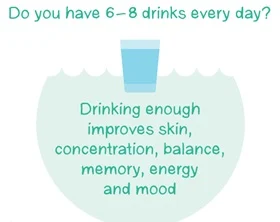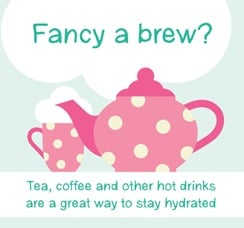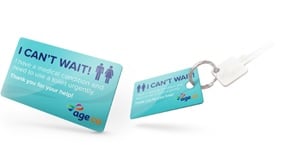Drinking well
Our body needs plenty of water to work. It lubricates the joints and eyes, aids digestion, flushes out waste and toxins, and keeps the skin healthy.

Dehydration happens when we don’t have enough fluid in the body.
If you are thirsty, this means you are already dehydrated. However, sometimes our sensation of thirst can reduce as we get older, particularly if you have had a stroke or have Alzheimer’s disease, so you may not realise soon enough that you are becoming dehydrated.
Watch this video
Watch this video to hear tips from Jean, Bev and Alf about how to drink well as we age.
Signs of dehydration
- Feeling thirsty, lightheaded, tired or confused – this could cause you to feel unsteady on your feet and could increase your risk of tripping or falling
- Dry mouth, lips or tongue
- Passing urine more often or less often than usual – this can lead to urinary infections and incontinence
- Constipation
What can I do?

- Have 6-8 drinks per day (200ml each – a normal cup or glass size). All hot and cold drinks count – you could keep a chart on your fridge to keep track
- If you take medication, take with a full drink
- Keep a water bottle with you and sip water continuously throughout the day
- Have food that is high in fluid, such as ice lollies, jelly, creamy sauces, custard and extra milk on cereal
- If you are worried about getting up in the night for the loo, don’t drink alcohol or caffeine close to bedtime and drink more earlier in the day
Worried about not making it to the toilet?
Many of us don’t drink as much as we should because we are worried that we might not make it to the toilet in time. If this applies to you, you should speak to your GP or a pharmacist who will be able to help you to manage this.
You can order a toilet card from Age UK, so you can discreetly let people know that you have to go. Order one here.
Monitoring fluid intake is a good guide to ensure good hydration.
If you are finding it difficult to have 6-8 drinks per day or have any concerns about incontinence discuss this with your GP or contact the local Continence Service.
